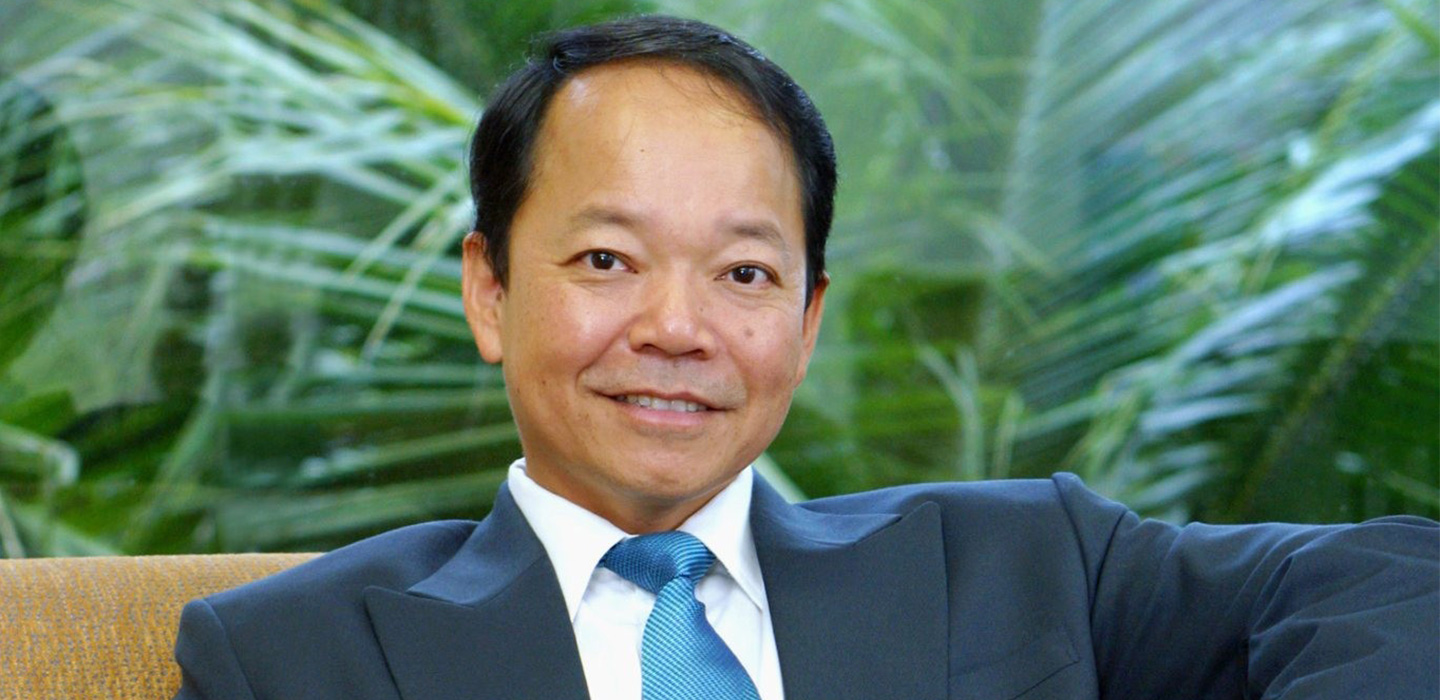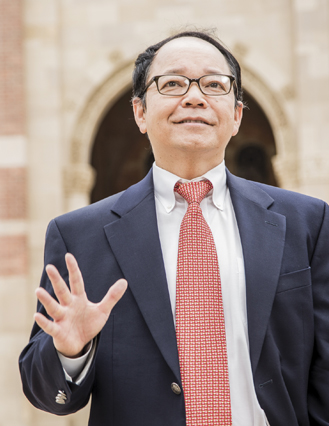Some will remember Chris Tang, Dean of the Business School from 2002 to 2004. He was also Senior Advisor to the President of NUS from 2000 to 2002.

Former dean Chris Tang remembers Business School

Today, Prof Christopher Tang is a UCLA Distinguished Professor and the holder of the Edward W. Carter Chair in Business Administration. Prof Tang has been on the faculty at UCLA for 30 years. He has consulted with numerous global companies including HP, IBM, Nestlé, GKN and Accenture; published 5 books and over 100 research articles in various leading academic journals; as well as written articles for Wall Street Journal, Financial Times, Fortune, Los Angeles Times, and The Guardian.
He was back with us last month at the invitation of the Department of Decisions Sciences. We took a walk with him down memory lane:
Back in those days, Business School was well-known locally but little known beyond Asia. He also noticed that unlike overseas universities, our students did not interact much with the school beyond their curricular time and upon graduation, maintained little ties with their alma mater.
Prof Tang recognised that all this had to change for the Business School to develop a strong identity and an international standing. It was a diamond in the rough that could be pushed to a higher potential. He also recognised that while NUS was already one of the top Universities in Asia, the Business School could not rest on its laurels.
We cannot control how other people treat us, but we can control our own reaction to events and people
He uses a simple analogy: Coke is already a very famous brand but it still has an ongoing aggressive marketing strategy to keep itself at the forefront of consumers’ minds. The buzzwords we easily rattle off now were in those days concepts that were alien: that it was important to increase the profile of Business School to the international world; and importantly also, to promote the graduates that have been through its portals, to the business community.
At least four departments today owe its creation to Prof Tang. To improve its profile, the Corporate Communications Dept and the Development Office were created up to market and position the school as a top school internationally and in the region. The Career Services office was set up to help students find jobs even before they graduated, while the Global Alumni Network Office was set up to maintain ties with past, present and future graduates.
By leveraging the high quality of our degree programmes and with the support of our students, alumni, faculty and staff, the Business School became one of the first business schools in Asia to receive the prestigious Association to Advance Collegiate Schools of Business (AACSB) accreditation in 2003.
When he returned to UCLA, in 2003, Prof Tang took the name of Business School further ashore by founding the UCLA-NUS EMBA programme, which is today ranked among the top five in the world by Financial Times and the Economist.
He cites little details in this journey too. To create awareness of Business School on campus, he had to lobby for, and seek funding, to put up signages and TV monitors. There was no money so the Business School logo was designed by an undergrad BBA student with the help of the former Dean’s assistant, Yap Choo Lian, and paid for in gratitude with a tea reception which costs $60. This logo remains in use today. We were fortunate to receive funding, so by the time he left, the plans for new building (the Mochtar Riady Building) were already drawn up.
So it was with great pleasure and delight, when he returned several years later, to walk around the new school grounds and to see how the School has grown. Today, Business School is ranked among top business schools regionally and internationally.
To Prof Tang, it is gratifying to see the seeds he planted years ago take root and grow so tall. He is grateful to the unceasing efforts exerted by all Deans, faculty, staff, alumni, and students over the last 50 years. He also enjoys catching up on friendships – while he is back, his schedule is filled with lunches and dinners with friends made those years here, friendships he continues to miss.
When asked if there were a message he would pass on to students today, he told the story of his own undergrad days. As he set off for the UK, he had in his pocket enough money for only one year’s school fees, while his mother had just sold her jewellery to pay for a one-way airline ticket. When he landed in the UK, he headed straight to Chinatown to look for work, food and a roof over his head. He was dish washer, porter, cleaner, secretary, janitor, supermarket shelf stocker, waiter, bartender – whatever kept him fed and warm and enabled him to continue to go to school.
He is grateful for those experiences because they enabled him to interact with different layers of people, and shaped his character. He tells students to expect to be disappointed in life and to expect struggles. He muses that all success means no learning is taking place; that will only cause complacency, and no improvement or creativity can take place. He advises student not to complain when they experience obstacles but to accept setbacks as a great learning lesson. After all, life is a journey!
Finally, he advises, “We cannot control how other people treat us, but we can control our own reaction to events and people.”


